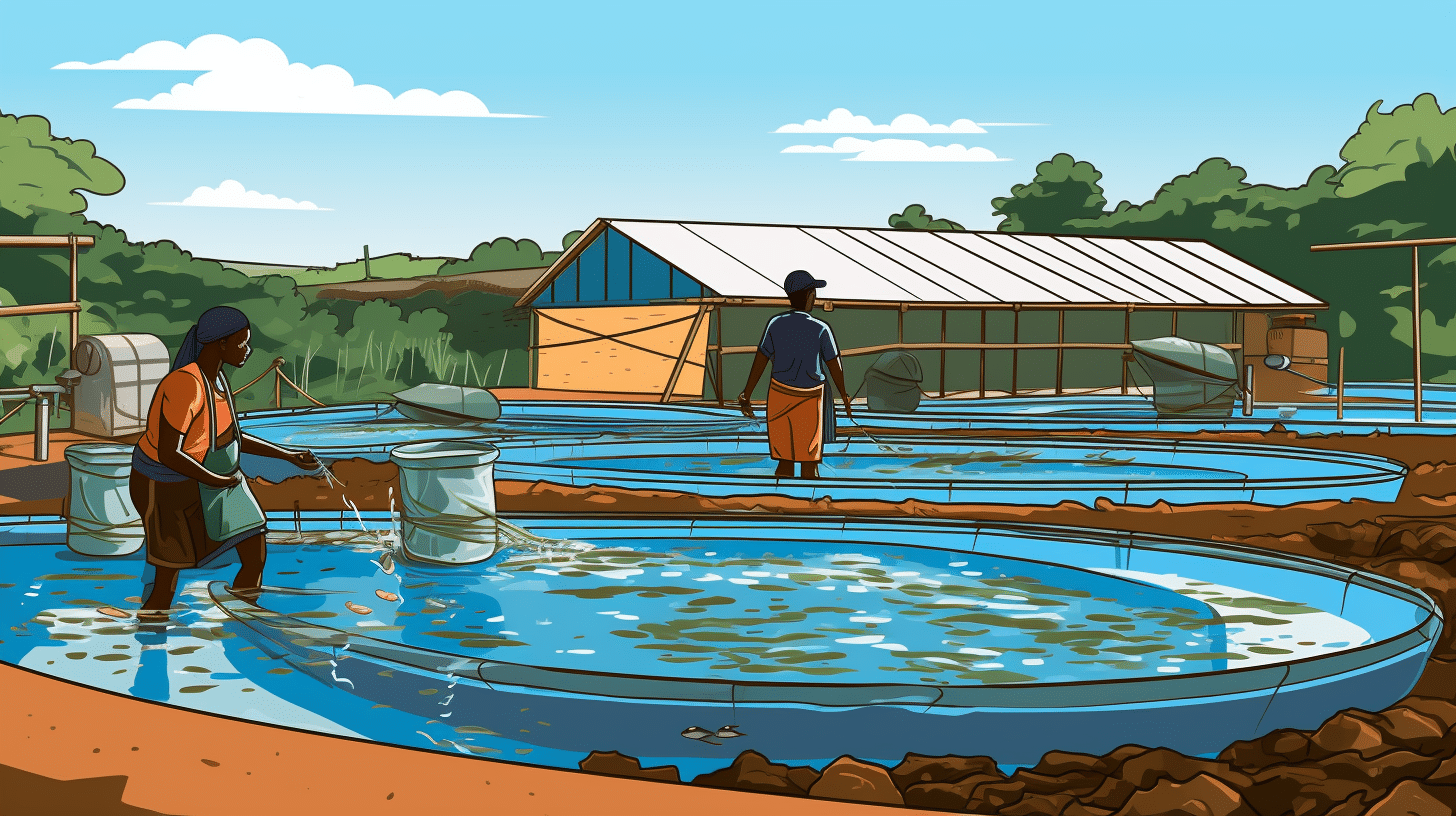Fish farming is a form of aquaculture in kenya; it is one of the most rewarding farming projects in Kenya. Fish is a very marketable white meat not only in the African Market but also overseas. Fish is known to be a very nice meat to expectant mothers for they help in brain formation of the unborn baby. Anyone can grow fish as long as they have passion of growing it.
Fish farming and harvesting has initially been known to be practiced in Coastal and around Lake Victoria i kenya. The Government, with the aid of ministry of fisheries gives a special assistant to anyone willing to do fish farming. Through Agricultural research even farmers can practice fish farming. Ministry of fisheries in kenya has come up with cheap ways to make a fish pond. Initially fish ponds were known to be constructed using expensive materials like ballast and a lot of cement. Skilled labor was also needed in the construction of the fish pond. Contrary to the above complexity in starting a profitable fish farming project, ministry of fisheries has come up with a cheap way to do it.
Requirements
Own a piece of land, water should be sufficient for fish pond, little capital ranging from fifteen thousand Kenya Shillings and above according to the quantity of fish you want to grow. the farmer is required to visit the ministry of agriculture offices and get the guided and educated appropriately, the Ministry of fisheries provides all the necessary equipments and services and also Markets the fish once they are ready for market.
The land has to be dung according to the instructions given by the Ministry; this will include the length and the depth of the fish pond. One of the construction materials will include a polythene paper which is laid on the ground to fit the size of the pond; the polythene paper is fixed to prevent water leakage. After the polythene paper is fixed pump in enough water then put the baby fish.
Benefits
Good use of idle land, the idle land gets utilized with a profitable project, no much labor required; the project needs only a daily check up to feed the fish. It is a profitable project because fish does not need much marketing; customers are ready to buy it once it’s in the market. It is a source of food; fish is known to be good food which can be consumed by any one, expectant mothers are advised to take it for brain formation of the unborn baby. The project grows fast according to the effort and the passion of the farmer. The farmer is promoted to an advisor and recognized in the field of agriculture by the ministry, it keeps the mind busy; this will be a wonderful project to keep one busy on the ground or through supervision.
The farmer should follow the instructions given by the ministry this will include the mode of feeding the fish and keeping the pond clean. While fishing the farmer should have the appropriate fishing tools. The ministry also helps in search of the market if the farmer cannot find the market. Next time you think of a project try this one and you won’t regret if you focus and do it with passion.



0 comments